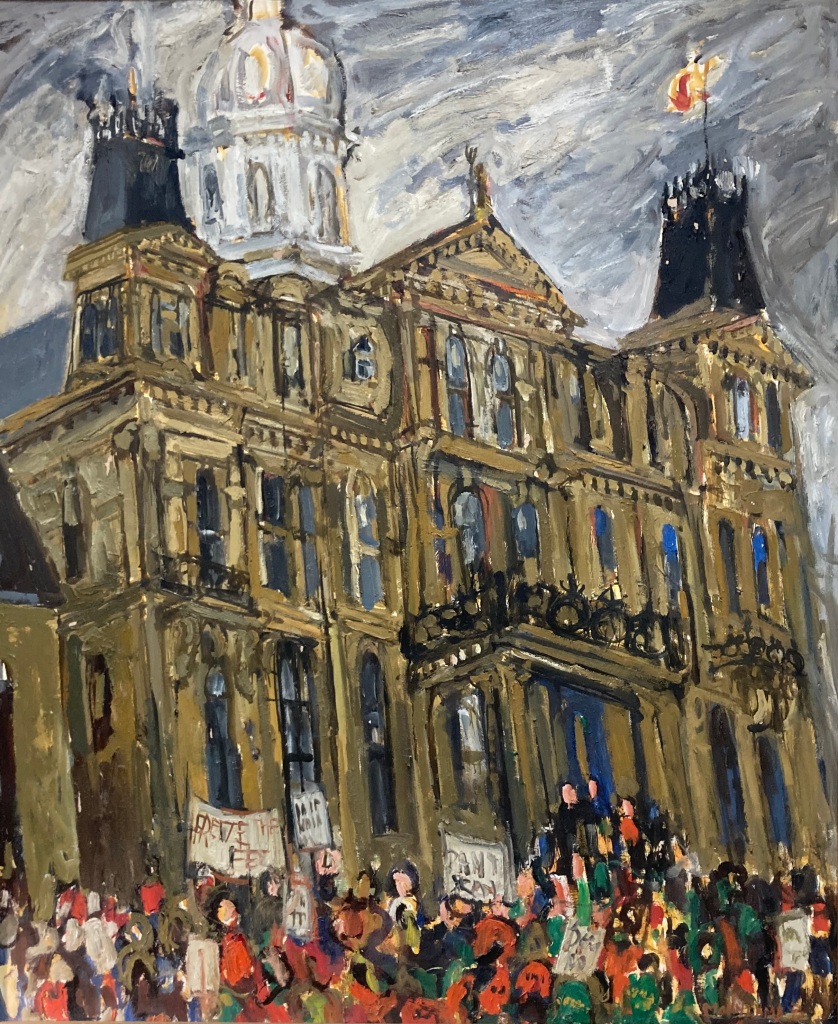By Donald Wright
It’s official: New Brunswick will not have a fall election.
But for much of September and October, the premier played a cynical game of cat and mouse, first hinting that he might call an early election, then hinting he might not, before letting the clock run down. After all, no one wants to campaign into December and the holiday season.
Because Blaine Higgs enjoys a clear majority, there was never a compelling reason to call an election. True, six caucus members – unhappy with the requirement that students under 16 must have parental consent before teachers can use their preferred pronouns – had voted with the opposition in the so-called June Rebellion. But by August, those same caucus members signaled their loyalty going forward.
Even Higgs’ minister of health publicly urged him to respect New Brunswick’s legislation on fixed election dates and to complete his mandate.
But Higgs has never liked that piece of legislation, which, frankly, isn’t worth very much. In 2020, at the height of the pandemic, he did the same thing when he called an election two years early, despite having a stable governing coalition.
Meanwhile, the rumour mill was working overtime. Just wait, journos and talking heads speculated. The premier will use the October speech from the throne to engineer his own defeat. Taking a page from Saskatchewan’s playbook, he will promise to protect his controversial policy on pronouns in schools with the notwithstanding clause, thus compelling the June rebels to vote with the opposition.
But that didn’t happen. Instead, the government delivered a largely anodyne throne speech that was heavy on what it has done and light on what it will do. At one point, it gently reprimanded New Brunswickers, reminding them of the golden rule: “In order to move forward, it is imperative that we keep communicating in a respectful way and that we show acceptance of one another.”
True enough. But it was rich coming from a premier who displayed neither respect nor acceptance when he waded into a September demonstration against LGBTQ rights, and who deliberately declined to cross the street to speak with counter demonstrators.
It was not one of his finer moments. In fact, The Toronto Star called it “ugly.”
Given the lack of anything concrete in the throne speech, journalists pressed Higgs about his government’s intentions. He replied to the effect that he didn’t want to play his hand too early, that he didn’t want to reveal measures to ease New Brunswick’s affordability crisis in a throne speech because he may need them later, as so many goodies in an election platform.
Liberal leader Susan Holt wasn’t buying it. Changing her tune, she now dared the premier to call an election or get off the pot. For his part, Green leader David Coon didn’t go that far, especially now that his Fredericton riding has been redrawn. Was it gerrymandered? We’ll never know, although there is a lot of Green rumbling that it was.
In the end, the speech from the throne was easily passed when the Tory caucus – including the six members who initially objected to the new pronoun policy – fell into line. Incredibly, the premier still dangled the threat of an election, coyly talking about election readiness.
Finally, on November 3rd, Higgs ended the speculation, saying definitively that there will not be an election in 2023.
Why did he waste everyone’s time, including his own? And why did he waste taxpayer’s money — $1 million according to the CBC – by effectively compelling Elections New Brunswick to sign short-term leases on 48 returning offices that will never be used. You’ll have to ask him.
There are real problems in New Brunswick: affordability, housing, lack of access to primary care, and the ongoing imperative to adapt our infrastructure and institutions to climate breakdown. But they require the hard work of governing, not the easy musings of a snap election. And they require a premier who respects diversity in its many shapes, sizes, and genders.
Donald Wright, University of New Brunswick.
Further Reading:
On the history of New Brunswick premiers and New Brunswick politics, see: Philip Lee, Frank: The Life and Politics of Frank McKenna (Goose Lane, 2010); Lisa Pasolli, “Bureaucratizing the Atlantic Revolution: The ‘Saskatchewan Mafia’ in the New Brunswick Civil Service, 1960-70,” Acadiensis (38.1, 2009); Ronald Rudin, Kouchibouguac: Removal, Resistance, and Remembrance at a Canadian National Park (UTP, 2016); Richard Starr, Richard Hatfield: The Seventeen Year Saga (Formac, 1987); R.A. Tweedie, On With the Dance: A New Brunswick Memoir, 1935-1960 (New Ireland Press, 1986); and R.A. Young, “‘and the people will sink into despair’: Reconstruction in New Brunswick, 1942-1952,” Canadian Historical Review (69.2, 1988).




